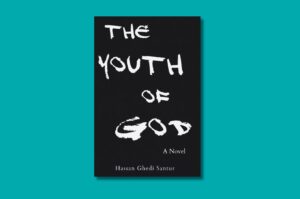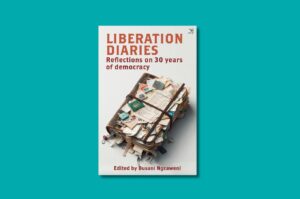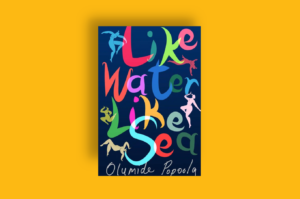Imbolo Mbue can still remember where she was when she picked up a call and heard a voice say to her, “Hi Imbolo, It’s Oprah.”
Oprah had called to tell her that her debut novel, Behold the Dreamers (2016), had been chosen as the 2017 Oprah’s Book Club selection. In an interview with Oprah’s friend and colleague Gayle King, Imbolo reveals that the call left her speechless and overwhelmed with emotion. Joining this elite club of writers featured on Oprah’s popular book platform is every novelist’s dream. But, when it comes to Imbolo, it is simply one incident in a dazzling career that boasts a number of major milestones.
Imbolo, 36, burst into the limelight three years ago when the news came out that she’d signed a million dollar book deal. That’s how I first found out about her. I have since followed her career and found it to be endlessly inspiring.
Behold the Dreamers is the moving story of Jende and Neni Jonga, a Cameroonian couple who find themselves lost and adrift in New York City in the wake of the 2008 housing market crash. Critics were quick to fall in love with the novel, in part, because it is a book that gives the thrill of a great story and the insight of a tale that captures the truth of our moment.
In this interview, Imbolo takes us through the 9 years of hard work that came before all the fame and success. She talks about the joys and challenges of writing and shares her thoughts on African pop music, Instagram, MFA programs, and why she loves her natural hair.
[Thanks to those Brittle Paper readers who participated in the #theaskseries by sending in questions with the hashtag #AskImbolo. We are delighted to let you know that she answered all your questions!]
***
INTERVIEWER
Congrats on all the wonderful things that’s been happening in your neck of the woods this past year. The PEN/Faulkner Award win and now the Oprah Book Club selection…among many others.
IMBOLO
Thanks Ainehi, for your kind words and your generous support of my work.
INTERVIEWER
Behold the Dreamers is a gorgeous book, but I first fell in love with your writing when I read the short story “Emke.” Your writing there is lyrical. There is a touch of the poetic. The story is quite dark. And even though the narrative form is realist, you flirted quite a bit with surrealist elements. Was that just a one-time thing, or do you hope to give us more of those kinds writings?
IMBOLO
You’re the first interviewer to ask me this question, and it makes sense, because you’ve been there from the beginning, and you’re familiar with the only two works of fictions I’ve published. I remember after a friend of mine read Behold the Dreamers, she was very confused, because she’d expected the story and writing to be similar to “Emke.” Which is understandable, because “Emke” was loosely excerpted from a story I’d spent nine years writing. I loved the voice I’d found while writing it, but that story was just not coming together and I needed to put it aside. And then one day I went for a walk, got the inspiration for Behold the Dreamers, and started writing a very different story. In the beginning, the writing was very similar to “Emke”, but the voice from “Emke” wasn’t what Behold the Dreamers called for and in the process of rewriting over and over, the writing in Behold the Dreamers began going in a different direction. For example, in the story from which “Emke” was excerpted, there isn’t much dialogue, and I always thought dialogue wasn’t my thing. Now it warms my heart how people come up to me to praise the dialogue in Behold the Dreamers—I wouldn’t have chosen to make the novel so dialogue-heavy, but I did it because the story demanded that I show these characters in their fullness and even though I’d written long lyrical paragraphs about them, ultimately, I had to delete that and let the characters speak because that is what did the most justice to them. I believe every story must be told how it must be told, and my job as the author is to step aside and allow that to happen. That said, if I ever have a next published work of fiction, you might find the story and writing to be far more like “Emke” (including “quite a bit with surrealist elements”) than like Behold the Dreamers
INTERVIEWER
When you burst into the limelight years ago, with the book deal and everything, were you surprised by the excitement and buzz that the news generated? Has the African literary community been as supportive as you expected?
IMBOLO
I was very surprised. And humbled by how happy and hopeful the news made so many people. The African literary community has been nothing but kind to me. Because my writing had mostly been a private sanctuary I went into to make sense of the world, and because I’m not much of an Internet person, I was totally clueless that the book deal was on the Internet until a friend called me and said: “You won’t believe it, but there’s talk on social media that you got a book deal. I don’t understand—you’re not even a writer!” Ha ha ha. I had a lot of explaining to do.
INTERVIEWER
As you worked on the manuscript, which was initially titled The Longings of Jende Jonga, what else changed in addition to the title?
IMBOLO
What my editor, David Ebershoff, said to me after he acquired the book was that the book was wonderful as it was, and it could be even more wonderful. So we did just that, mostly tightening it. The hardest part was coming up with a new title. I thought The Longings of Jende Jonga was an awesome title, but I had to admit that even though I’d began this story as that of Jende primarily, and to an extent Jende and Clark, this was ultimately a story about four main characters: Jende, Neni, Clark and Cindy. Of course, to come up with a title we had to agree on what the novel was essentially about, and for a story that touches on the financial crisis, marriage, class, family, race, New York City, among many things, almost everyone in my publishing team had something different that they had connected to. I spent eight months coming up with numerous titles, and every single one of the titles was rejected by the team and when finally I came up with Behold the Dreamers, I spent a long day hoping they would accept it and thankfully they did.
INTERVIEWER
Your story as a writer is inspiring for so many reasons, one of which is that you became famous before your first book came out. That’s a pretty amazing place to be in. But did this newly acquired fame put any pressure on you as you revisited the manuscript in order to perfect it for publication?
IMBOLO
I strive for excellence. I want to be able to look at the work I’ve produced and tell myself that I did an excellent job. Getting a publisher didn’t change that. There were actually times when my editor thought something in the novel was wonderful, and I still deleted and rewrote it, because it wasn’t wonderful to me. I demand the best of myself even for work I’ll never publish. And by the way, did you just call me “famous?” Girl, please.
INTERVIEWER
Writing Behold the Dreamers had to have been a fulfilling but also challenging project. And writing, in general, can feel like backbreaking labor. But are there moments in the novel that you thoroughly enjoyed writing?
IMBOLO
It was—fulfilling and challenging. Writing about an executive who works at Lehman Brothers wasn’t easy as I wasn’t very familiar with that world when I began writing the novel, but I was able to slowly get the characters. Overall though, writing this novel was a joy. I loved writing the dialogue between the African characters. Jende and Neni are from my hometown, so it was like going to Cameroon every time with them, and of course, minor characters like Bubakar and Fatou made me laugh so hard. They reminded me of so many fellow Africans I’ve met who just delighted me with their over-the-top opinions and sense of humor.
INTERVIEWER
Can I be honest with you and say that the spousal abuse scene was a bit hard for me to read, in part, because it seemed gratuitous? I kept asking myself: did we really need to see him violate her body in that way for us to get the point about his being under a lot of pressure? Why are we using violence done to a woman’s body to illustrate the breakdown of one man’s mind? And why was the incident so easily brushed off and forgotten in the rest of the story? That’s what was running through my mind.
IMBOLO
I do appreciate your honesty and point of view. That scene, like much of the novel, was inspired by real-life people and as such my job with it, as with the whole novel, was to present the story realistically and leave my own views and opinions out. I don’t need to preach or moralize for readers—they can do that for themselves.
INTERVIEWER
You feature a good bit of African pop hits in the novel: tracks like Meiway’s “200% Zoblazo” and PSquare’s “Chop My Money.” I found myself stopping in the middle of a paragraph to go find the song you mentioned on Spotify and listening to the track as I continued reading. It was so fun! Why was it important to you to give the narrative a strong musical context? What does music do for your characters and your sense of their fictional world?
IMBOLO
Growing up in Cameroon, I was exposed to music from all over Africa and perhaps the inclusion of musicians from various parts of the continent was a celebration of that. And of course, there’s nothing like a great African party where the jollof rice is delicious and the music is flowing and people are cutting out soukous and makossa and ndombolo and for a little while you forget you’re in a whole other continent.
INTERVIEWER
The more Jende and Neni’s life fell apart the more driven they became by this somewhat utopian idea of Limbe and the continent as a whole. I loved that about the story. I love the fact that the notion of the American Dream is inverted so that the more the illusion of America as the land of milk and honey faded the more Africa emerged as the site of dreaming and the object of desire. Do you think there is such a thing as an African Dream?
IMBOLO
An interviewer asked me that question last year, about what the “African Dream” meant and I was flustered, because I’d never heard of it, but there’s such a thing, isn’t there? I imagine it’s different from the “American Dream” primarily in the sense that it is not highly individualistic since many of our cultures emphasize the importance of community. Then again, considering the disparity in income endemic in many of our countries, can we say we haven’t adopted some measure of American individualism?
INTERVIEWER
Google and the bible kept coming up as grounding subtexts in the novel. I love Neni’s dependence on Google for everything including her epic take-down of Edwards’ wife. I also really like how Deuteronomy frames the narrative arc of the story. Is Google the Ur-text or bible of our generation?
IMBOLO
It appears so, and Neni is definitely an example of someone who Googles her way to solutions, which is something I find endearing about her, even if I don’t rely on Google as much as she does.
INTERVIEWER
Brittle Paper reader John Flicks asked, on Facebook, whether you had any self-doubt as you worked on Behold the Dreamers.
IMBOLO
I had moments when I struggled with the story, yes. I had some doubts, but they weren’t big enough to compel me to abandon the project as I’d grown very passionate about it and I had made up my mind that I was going to finish the story. I think my biggest self-doubts came whenever I deleted a chunk of the novel because it wasn’t working and then I had to start making my way through a rewrite.
INTERVIEWER
One of the most recurring questions posed on our social media platforms had to do with your writing process. Everyone seems to want to know what your process was. Twitter user Kiprop Kimutai (@Tirobon) wants to know how many drafts of Behold The Dreamers you produced.
IMBOLO
I can’t even count the number of drafts. I did dozens upon dozens before I got a publisher and after that, dozens more and by the time it went through copy-editing and proofreading, I’d stopped counting. I’m one of those writers who needs to read the whole manuscript with every minor edit, which didn’t make the process any easier. And speaking of process, I don’t have much of it. I start writing once I have an inspiration and allow everything to come to me in the process of writing. I only get to know the characters and the plot in the process of writing. I write in my apartment but I can write at any time of day and it doesn’t matter if it’s quiet or noisy.
INTERVIEWER
@ngozimcole wants to know how you supported yourself financially all through the years of nurturing your craft and drafting the novel.
IMBOLO
I had jobs with pretty standard hours and that gave me the balance of working and having the time to write either during my lunch breaks or after work. Looking back now, I realize that was a major advantage, because I spent a lot of my hour-long breaks reading or working on a story. After I lost my job about a year before I began writing Behold the Dreamers, I did a lot of writing in between going out to job interviews.
INTERVIEWER
Given that you’re a self-taught writer, twitter user @nkiacha is curious about your thoughts on MFA programs. I’m curious about how you trained yourself to write so beautifully.
IMBOLO
If I had decided that I wanted to be a writer and had the opportunity to attend an MFA program, I probably would have gone that route. But a literary career wasn’t something I’d given much thought to so my writing wasn’t much more than a hobby and a journey of self-discovery. How did I train myself? By writing and rewriting whatever was true to me. I read great literature and I wrote and then I read more and I wrote and I can’t imagine there was a better education for me than being a lifelong reader.
INTERVIEWER
I’m always curious about what writers think of the form in which they write. What attracted you to realism as a form of storytelling? Are you married to realism for life? Do you see yourself exploring other forms?
IMBOLO
My stories begin with an inspiration and I’ll go with any form of storytelling. If tomorrow I get an inspiration to write a sci-fi trilogy, I won’t hold myself back. Of course, if anyone is going to want to read it is a whole other issue.
INTERVIEWER
We miss you so much on social media. When are you joining us on Twitter and Instagram?
IMBOLO
Thank you all so much for thinking of me on social media! I’ve heard about so many wonderful things that have been said about the book and some days I wish I were more of an Internet person. It’s not only social media I avoid—outside of checking my email and other routine issues, I barely go on the Internet unless when I get an email with a great article. As wonderful as the Internet and social media are, I just don’t have the capacity for it and I believe it’s best that I recognize that.
INTERVIEWER
I don’t know if you’ve noticed, but women are dominating African literature globally. We are seeing so many women like yourself doing really innovative things in the literary sphere and changing the game on how to write, sell, and ascribe value to African writing. Any idea what accounts for this change?
IMBOLO
Regardless of what the reason is, it all comes down to one thing: the work. We can’t control what people want to read or not read, and I wouldn’t ever advice any aspiring writer to think about publishers or book deals. What I would advise them is to tell the story they want to tell. Write the book you want to write. And do an excellent job at it. If there are African women making waves on the literary scene, it’s not because they are African—it’s because their works are excellent.
INTERVIEWER
This question was inspired, in part, by twitter user @Pirate_4_life86. Your natural hair game is on point. Flora Hanitijo’s shot of your hair with you backing the camera is one of the most iconic natural hair moments in African literature. It’s one thing to have natural hair. It’s another thing to get the look right. You do both effortlessly well. What’s the secret? Do you have any hair-care tips to share with fellow naturalistas?
IMBOLO
I’m so grateful for your compliments. It’s been such a long journey for me to come to love my hair, and there really hasn’t been a secret except for the fact that I had to accept that this is the hair I was born with and that’s the end of that. I try not to touch it too much—I wear a lot of top buns and then blow it out once in a while. I got the style in my author photo by having it blow-dried and put in two French-braids before undoing it. As for keeping it healthy, I deep condition after every shampoo and condition, and I trim every few months. I used to think not trimming would make my hair longer: wrong. We’ve got to trim, fellow naturalistas. I also figured out that once I’m done with all my wash routine, it’s better that I finger detangle with oils and leave-in conditioner before combing. I love my hair much more now that taking care of it no longer has me eyeing the scissors.
INTERVIEWER
How fun has the Oprah Book Club selection being for you? Congrats, by the way!
IMBOLO
It was an unforgettable experience. Oprah Winfrey is an incomparable champion of books and authors and I couldn’t have been more speechless when I picked up my phone and heard “Hi Imbolo, it’s Oprah.”









COMMENTS -
Reader Interactions